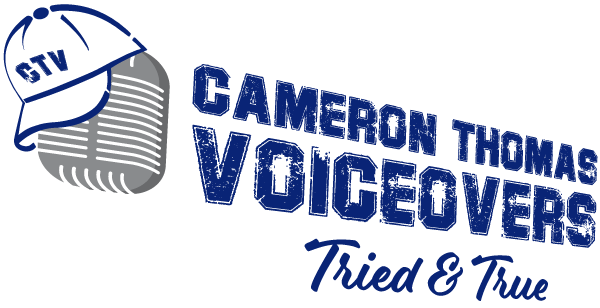You have worked hard starting your voiceover business. After all of the training, practicing, demos, auditioning, recording, and invoicing, you are proud of your accomplishments and officially calling yourself a voice actor. Those are some big ticket items that cost a lot of money, time, and effort. However, there are some other skills that are just as critical to your voiceover business. These can make or break relationships with your clients and negate all that hard work.

After 16 years as a voice over guy I have completed hundreds of projects for commercials, corporate videos, e-learning, explainer videos, podcasts, real estate, and more. My other work as a project manager for a website development has also helped me identify areas that dramatically impact the success of a project. These are common sense, best-practices that you already know, but are certainly worth highlighting. And this is not to say that I am an expert on these. Not at all! In fact, I am guilty of some of these. I just won’t say which one(s) though.
Following Detailed Instructions
Attention to detail. Many of you may be great at this. It may not be as easy for others. Ok, I’ll be honest. I am guilty of this. In fact, I was guilty of it as I wrote this blog! I have to work hard at this because I tend to work quickly. There are many times that I need to focus on slowing down to ensure I do not miss anything.

Some folks have a vision of VO work as getting a script, recording it, and getting paid. Seems simple. For the most part, it is. But it depends on the project. As they say, the devil is in the details.
For starters, ensure you are following audition instructions. Any online voice actor group will remind you of how agents and casting directors get frustrated with voice talent not following their specific audition instructions. Aside from the casting direction, slating, and labeling details are very specific. Like letter specific. Or else your audition will not be heard. So be sure to re-read those audition instructions.
If you are selected for one of these projects, great! Be ready for more instructions though. A 30 second commercial script has less direction and detail than lengthy e-learning projects or audiobooks. Depending on the project and vendor, you may need to dive into pages of instructions, labeling details, and file transfers. A small labeling error could cost your client time and even money. Do not forget about managing a large number of audio files and recording in proper audio formats. IVR and telephony projects may have massive lists of files to record and track. Please do not underestimate the scope of what you need to track. Do not breeze through those instructions. They are there for a reason.
Editing Audio
With most voice actors recording from home studios editing audio on their digital audio workstation (DAW), this probably goes without saying. Auditions need to be edited for a clean presentation! Most folks can do this, but there are some who cannot. Sure, a lot of projects are done in-studio or even remotely through Source Connect directly to the audio engineer. (Check out tips for your Source Connect session) They handle editing from there. For most of us, you need to be familiar with your DAW and editing. Perhaps you need to record in a different audio format. Or make revisions to existing audio. I have had projects start as a Source Connect session but revisions were later finished from my studio. Making those edits on your own quickly will be much more helpful to your clients.
engineer. (Check out tips for your Source Connect session) They handle editing from there. For most of us, you need to be familiar with your DAW and editing. Perhaps you need to record in a different audio format. Or make revisions to existing audio. I have had projects start as a Source Connect session but revisions were later finished from my studio. Making those edits on your own quickly will be much more helpful to your clients.
Managing Emails
There are many pet peeves when it comes to emails. We all have them. However, a few simple adjustments that I have noticed can help avoid some messy email communication snafus.
Minimize multiple email chains. Email chains can go on forever. Yes, it can be difficult to keep reviewing lengthy chains. However, starting a new email thread for every reply or question ends up being too many to track. Answers to questions end up all over the inbox.
 My emails to folks in project management are pretty lengthy; however every bit of info is there for a reason and speaks to common questions and issues that come up. I know it is a lot but I’m happy to clarify things. To my earlier point about detail, I do understand when folks miss something.
My emails to folks in project management are pretty lengthy; however every bit of info is there for a reason and speaks to common questions and issues that come up. I know it is a lot but I’m happy to clarify things. To my earlier point about detail, I do understand when folks miss something.
Also using multiple emails addresses is difficult for clients to track. Keeping emails contained to one address helps them manage their inbox better and streamline communications.
Keep important emails handy until your project is done. Archive them for later reference. Clients may question your reliability asking repeatedly for info sent already.
Keeping A Cool Head In Challenging Situations
This could really dovetail into everything about professional communication and emotional intelligence, but I’ll keep it brief here. Misunderstandings and difficult situations will occur. How do you handle it? Do you flip your lid? Or keep a cool head? Pack your patience! It will serve you more than you know. Your reactions in sticky situations speak volumes about you and how others perceive you.
You Never Know Who Is Considering You For Work
 Here is an example. During a leadership training course years ago, the speaker told us a story about how he was hiring someone for a position at his company. After multiple interview sessions, he finalized his preferred candidate. Instead of offering him the position, he said they selected someone else. Why? He wanted to see what their reaction to bad news. If the person was understanding, albeit disappointed, and cordial, then perhaps that person might have the emotional intelligence to handle difficult situations at work. In that case, they may be the right choice. The manager would reach back out to the candidate to say that things changed, the position reopened, and was available.
Here is an example. During a leadership training course years ago, the speaker told us a story about how he was hiring someone for a position at his company. After multiple interview sessions, he finalized his preferred candidate. Instead of offering him the position, he said they selected someone else. Why? He wanted to see what their reaction to bad news. If the person was understanding, albeit disappointed, and cordial, then perhaps that person might have the emotional intelligence to handle difficult situations at work. In that case, they may be the right choice. The manager would reach back out to the candidate to say that things changed, the position reopened, and was available.
If the person flew off the handle with a harsh reaction, then that might be red flag of how they would react under pressure in the workplace. Would that be someone you would want to work with? In that case, on to the next candidate.
Same thing in voice-overs and my project management work. How do you handle situations with co-workers, clients, or vendors? Do you treat everyone the same? This is a networking world. Would they refer you to others? Folks often move or advance into other positions or careers. Would they consider bringing you on board after working with you? I have seen how folks portray themselves as being professional and friendly, but behind the scenes, are completely different. Would I consider others for other work opportunities knowing how they treated others? Hmmmm.
There also seems to be a fixation or sense of pride on being demanding, unwavering, and taking a tough stand on things. (Remember your DiSC assessment?) Depends on the situation. But not for run-of-the-mill, mundane procedural tasks. Asking for things to be done comes across much better than demanding. People are busy. Misunderstandings will happen. So be it! Don’t harp on it. Acknowledge it, and move on.

